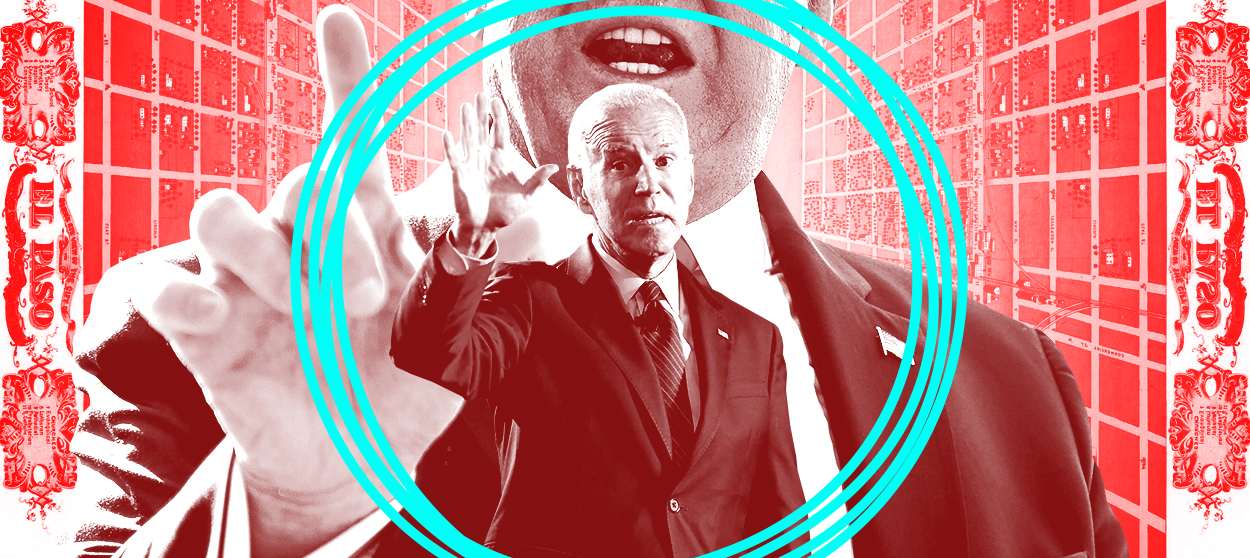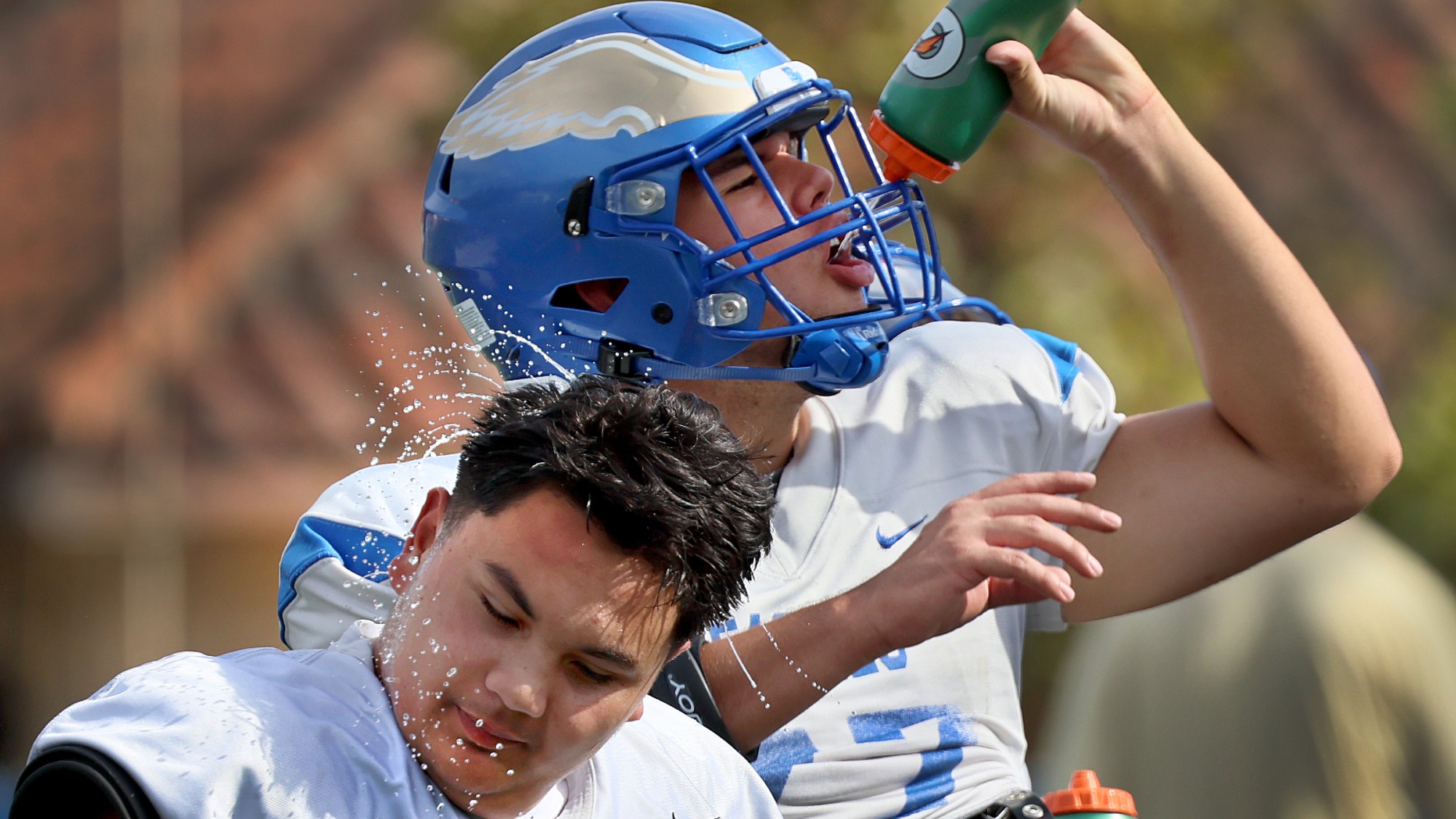Incoherent in Iowa
Joe Biden's speech about the recent mass shootings showed why he's uniquely unfit to take on Trump


A free daily email with the biggest news stories of the day – and the best features from TheWeek.com
You are now subscribed
Your newsletter sign-up was successful
The only thing drearier than having one national mourner-in-chief is having two of them. To his dubious credit, President Trump chose not to speak publicly during the course of his visits to Dayton and El Paso on Wednesday. Instead, he met privately with local and state politicians and with law enforcement.
Not so the frontrunner for the Democratic presidential nomination. In the course of about 15 painfully tedious minutes Wednesday afternoon in Iowa, Joe Biden gave one of the most moronic, ham, parodies of a campaign speech I have ever heard. The former vice president referred to "the Southern Poverty Center" and the "Klu Klux Klan," and quoted white supremacists in Charlottesville as chanting "You will replace us!" He garbled a Lincoln quote and referred to America as "the nation that Barack Obama proved toward bends toward justice."
Should we really be surprised that someone who earlier offered his sympathies to the victims of shootings in "Michigan and Houston" does not know how to pronounce the name of the nation's oldest racist terrorist organization? No. But it should give some Democrats pause before they insist that the only person who can beat Trump in 2020 is a soon-to-be 77-year-old white man famous for his malapropisms.
The Week
Escape your echo chamber. Get the facts behind the news, plus analysis from multiple perspectives.

Sign up for The Week's Free Newsletters
From our morning news briefing to a weekly Good News Newsletter, get the best of The Week delivered directly to your inbox.
From our morning news briefing to a weekly Good News Newsletter, get the best of The Week delivered directly to your inbox.
Still, there are other, more important reasons that Biden's speech fell flat for any honest, non-blinkered observer. It would be hard to think of a Democratic politician less capable of speaking with moral authority on the subject of American race relations than the former vice president. Never mind his gushing over Strom Thurmond or his nostalgia for the good old days of hammering out back-room deals with Southern segregationists or his warnings about children growing up "in a racial jungle." The guy who has spent the last week recycling a speechwriter's quip about how Trump is "closer to George Wallace than George Washington" has had plenty of good things to say about the man who stood in the schoolhouse doorway.
In 1975, Biden said: "I think the Democratic Party could stand a liberal George Wallace — someone who's not afraid to stand up and offend people, someone who wouldn't pander but would say what the American people know in their gut is right." In the course of a single Senate committee hearing in 1981 Biden repeated a false claim about having marched for civil rights, called busing "stupid," complained about the delusions of "liberal sociologists," and insisted that "George Wallace is right about some things." He also called prison rehabilitation programs "garbage" and argued in favor of "minimum mandatory life imprisonment, no probation, no parole, no apology."
This sort of talk was typical of Biden then and would remain so for most of his career in the Senate. Until virtually the minute he was selected as Barack Obama's running mate in 2008, Biden was unusually comfortable making use of what any liberal observer would now consider racist dog whistles. His character assassination of Clarence Thomas during the latter's Supreme Court confirmation hearing was a patently obvious attempt to make use of racist tropes about black male hypersexuality. In the '90s he was virtually synonymous with the Clintonite Third Way "tough on crime" rhetoric. He only recently stopped taking credit for helping to write the 1994 bill that led to the epidemic of mass incarceration.
Why does anyone care what this septuagenarian bungler thinks about race — or any other issue? There are any number of reasons that Democrats might prefer Biden to Trump (the former is far more likely to support military adventures in the Middle East, for example, and the ratification of new multilateral trade deals). But his ability to contribute anything of value to our national conversation about race, much less to hold the current president to account for his own rhetoric, is not one of them.
A free daily email with the biggest news stories of the day – and the best features from TheWeek.com
Matthew Walther is a national correspondent at The Week. His work has also appeared in First Things, The Spectator of London, The Catholic Herald, National Review, and other publications. He is currently writing a biography of the Rev. Montague Summers. He is also a Robert Novak Journalism Fellow.
-
 6 of the world’s most accessible destinations
6 of the world’s most accessible destinationsThe Week Recommends Experience all of Berlin, Singapore and Sydney
-
 How the FCC’s ‘equal time’ rule works
How the FCC’s ‘equal time’ rule worksIn the Spotlight The law is at the heart of the Colbert-CBS conflict
-
 What is the endgame in the DHS shutdown?
What is the endgame in the DHS shutdown?Today’s Big Question Democrats want to rein in ICE’s immigration crackdown
-
 The ‘mad king’: has Trump finally lost it?
The ‘mad king’: has Trump finally lost it?Talking Point Rambling speeches, wind turbine obsession, and an ‘unhinged’ letter to Norway’s prime minister have caused concern whether the rest of his term is ‘sustainable’
-
 The billionaires’ wealth tax: a catastrophe for California?
The billionaires’ wealth tax: a catastrophe for California?Talking Point Peter Thiel and Larry Page preparing to change state residency
-
 Bari Weiss’ ‘60 Minutes’ scandal is about more than one report
Bari Weiss’ ‘60 Minutes’ scandal is about more than one reportIN THE SPOTLIGHT By blocking an approved segment on a controversial prison holding US deportees in El Salvador, the editor-in-chief of CBS News has become the main story
-
 Memo signals Trump review of 233k refugees
Memo signals Trump review of 233k refugeesSpeed Read The memo also ordered all green card applications for the refugees to be halted
-
 Has Zohran Mamdani shown the Democrats how to win again?
Has Zohran Mamdani shown the Democrats how to win again?Today’s Big Question New York City mayoral election touted as victory for left-wing populists but moderate centrist wins elsewhere present more complex path for Democratic Party
-
 Millions turn out for anti-Trump ‘No Kings’ rallies
Millions turn out for anti-Trump ‘No Kings’ ralliesSpeed Read An estimated 7 million people participated, 2 million more than at the first ‘No Kings’ protest in June
-
 Democrats: Harris and Biden’s blame game
Democrats: Harris and Biden’s blame gameFeature Kamala Harris’ new memoir reveals frustrations over Biden’s reelection bid and her time as vice president
-
 ‘We must empower young athletes with the knowledge to stay safe’
‘We must empower young athletes with the knowledge to stay safe’Instant Opinion Opinion, comment and editorials of the day
